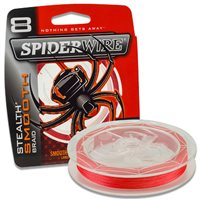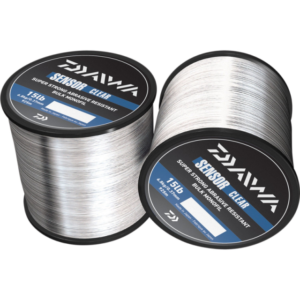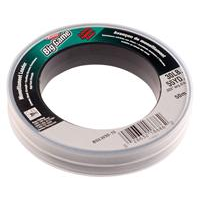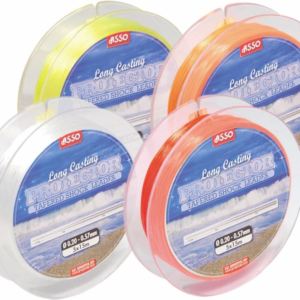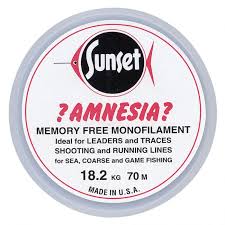Sea Line
Our Favourite Lines...
-
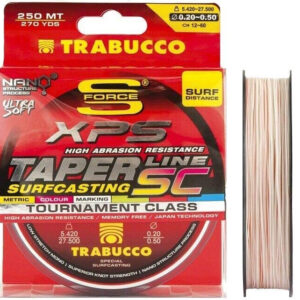
Trabucco XPS SC Taper Line 250M
£15.99 -

Axia Green Mono 4oz Spool
£6.99 -

Tronixpro Blackout Memory Free Snood Line 200m Clear
£5.99 -

Tronixpro Xenon Tapered Leaders 50/50 – Orange/Clear
£7.99 -

Axia Clear Mono 4oz Spool
£6.99 -
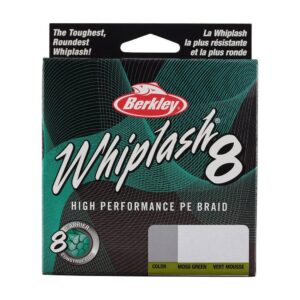
Berkley Whiplash 8 150M spool Braid
£17.99 -
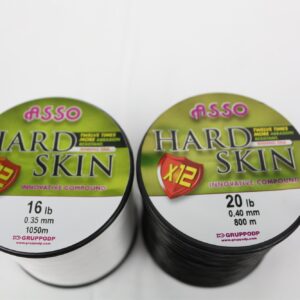
Asso Hard Skin Mono
£13.99 -
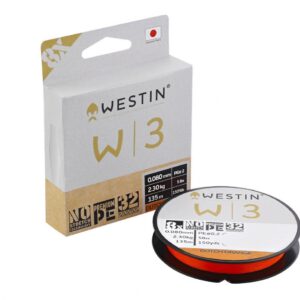
Westin W3 DUTCH ORANGE 8 BRAID
£12.99 -

HTO Tempest FC Leader 30m Clear
£5.99 – £9.99 -
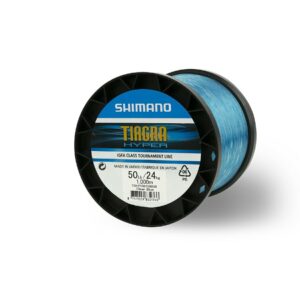
Shimano Tiagra Hyper Troll IGFA Line 1000m -Clear Blue
£47.99 – £61.99 -
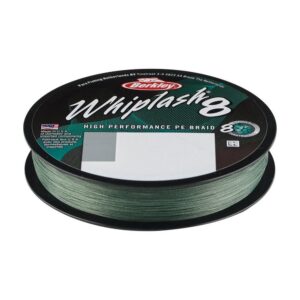
Berkley Whiplash 8 Moss Green 300M 28LB
£28.99 -
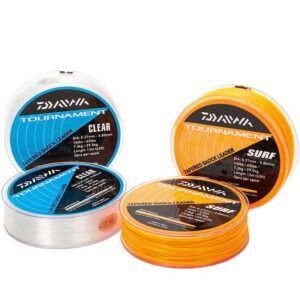
Daiwa Tournament Tapered Shock Leader
£9.99
Sea fishing is a popular pastime in the UK, and having the right line is key to successful fishing. The right line should be strong enough to handle the weight of larger fish, and durable enough to withstand the harsh saltwater environment. In this article, we will take a closer look at sea fishing lines and their suitability for fishing in the UK.
Monofilament Line
Monofilament line is a popular option for sea fishing, due to its combination of affordability, flexibility, and strength. It is made from a single strand of nylon, and is available in a range of sizes and strengths.
Key features of monofilament line include:
– Stretch: Monofilament line has some stretch, which can help to absorb the shock of a fish striking the bait or lure.
– Visibility: Monofilament comes in a range of colors and is relatively easy to see in the water, which can help to detect bites.
– Cost: Monofilament line is affordable and widely available, making it a popular choice for beginner and experienced anglers alike.
One of the downsides of monofilament line is that it can be susceptible to twisting and curling, especially in windy or rough conditions.
Braid Line
Braid line is another popular option for sea fishing. It is made from multiple strands of ultra-thin fibers that are woven together to create a strong and durable line.
Key features of braid line include:
– Strength: Braid line is thinner and stronger than monofilament, making it ideal for targeting larger species of fish.
– Sensitivity: Braid line is highly sensitive, which can help anglers to feel even the slightest of bites.
– Abrasion resistance: Braid line is more abrasion-resistant than monofilament, making it a good choice for fishing in areas with sharp rocks or reefs.
One drawback of braid line is that it has no stretch, which means that it can be difficult to detect when a fish has taken the bait.
Fluorocarbon Line
Fluorocarbon line is a newer option on the sea fishing line market. It is made from a single strand of fluorocarbon, which makes it invisible in the water.
Key features of fluorocarbon line include:
– Invisibility: Fluorocarbon line is nearly invisible in the water, making it ideal for targeting fish in clear water.
– Strength: Fluorocarbon line is strong and durable, with some models available in high-strength options.
– Abrasion resistance: Fluorocarbon line is highly abrasion-resistant, making it ideal for fishing in areas with a lot of structure.
One of the downsides of fluorocarbon line is that it is more expensive than both monofilament and braid line, but its benefits can outweigh its cost.
Conclusion
Choosing the right sea fishing line is important for successful fishing in the UK. Monofilament, braid, and fluorocarbon lines are all suitable options, each with their own unique strengths and weaknesses. Consider factors such as strength, visibility, stretch, sensitivity, and abrasion resistance when selecting a line that suits your fishing needs. With the right line, you can increase your chances of catching a variety of species in UK waters.
100% Original product that covered warranty by the vendor.
You have the right to return your orders within 30 days.
Your orders are shipped seamlessly between countries.
Your payments are secure with our private security network.
Sea fishing is a popular pastime in the UK, and having the right line is key to successful fishing. The right line should be strong enough to handle the weight of larger fish, and durable enough to withstand the harsh saltwater environment. In this article, we will take a closer look at sea fishing lines and their suitability for fishing in the UK.
Monofilament Line
Monofilament line is a popular option for sea fishing, due to its combination of affordability, flexibility, and strength. It is made from a single strand of nylon, and is available in a range of sizes and strengths.
Key features of monofilament line include:
– Stretch: Monofilament line has some stretch, which can help to absorb the shock of a fish striking the bait or lure.
– Visibility: Monofilament comes in a range of colors and is relatively easy to see in the water, which can help to detect bites.
– Cost: Monofilament line is affordable and widely available, making it a popular choice for beginner and experienced anglers alike.
One of the downsides of monofilament line is that it can be susceptible to twisting and curling, especially in windy or rough conditions.
Braid Line
Braid line is another popular option for sea fishing. It is made from multiple strands of ultra-thin fibers that are woven together to create a strong and durable line.
Key features of braid line include:
– Strength: Braid line is thinner and stronger than monofilament, making it ideal for targeting larger species of fish.
– Sensitivity: Braid line is highly sensitive, which can help anglers to feel even the slightest of bites.
– Abrasion resistance: Braid line is more abrasion-resistant than monofilament, making it a good choice for fishing in areas with sharp rocks or reefs.
One drawback of braid line is that it has no stretch, which means that it can be difficult to detect when a fish has taken the bait.
Fluorocarbon Line
Fluorocarbon line is a newer option on the sea fishing line market. It is made from a single strand of fluorocarbon, which makes it invisible in the water.
Key features of fluorocarbon line include:
– Invisibility: Fluorocarbon line is nearly invisible in the water, making it ideal for targeting fish in clear water.
– Strength: Fluorocarbon line is strong and durable, with some models available in high-strength options.
– Abrasion resistance: Fluorocarbon line is highly abrasion-resistant, making it ideal for fishing in areas with a lot of structure.
One of the downsides of fluorocarbon line is that it is more expensive than both monofilament and braid line, but its benefits can outweigh its cost.
Conclusion
Choosing the right sea fishing line is important for successful fishing in the UK. Monofilament, braid, and fluorocarbon lines are all suitable options, each with their own unique strengths and weaknesses. Consider factors such as strength, visibility, stretch, sensitivity, and abrasion resistance when selecting a line that suits your fishing needs. With the right line, you can increase your chances of catching a variety of species in UK waters.

